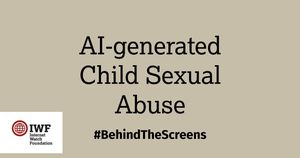A New York abortion doctor is facing serious legal consequences after being indicted by a Louisiana grand jury for allegedly mailing abortion pills to the minor daughter of a Baton Rouge-area mother. Dr. Margaret Carpenter, along with her clinic, Nightingale Medical, and the child's mother, were indicted on felony charges for allegedly facilitating illegal abortions via medication.
The charges stem from allegations of criminal abortion under Louisiana's stringent pro-life laws. Reportedly, the teenager had originally planned to carry her baby to term, excitedly preparing for the reveal party before she was coerced to take the pills, according to District Attorney Tony Clayton. "She was a minor and ... she was excited. She had planned a reveal party. She had wanted to have this baby," Clayton stated to WBRZ-TV.
Following the ingestion of the pills, complications arose, leading the teenager to call 911 and requiring emergency transport to the hospital where she was stabilized. The case has notable ramifications as it marks the first known criminal indictment against a medical provider for mailing abortion pills across state lines since the Supreme Court overturned Roe v. Wade, stripping federal protections for abortion.
Grand jurors indicted Carpenter during proceedings at the District Court for the Parish of West Baton Rouge, highlighting Louisiana's recent laws categorizing abortion pills as controlled substances. These laws impose severe penalties for prescribing or possessing these medications without valid prescriptions, including possible fines and significant prison time. Louisiana prohibits abortions entirely, emphasizing the legal dangers associated with distributing such drugs.
According to Clayton, the incident reflected more than just legal boundaries—it was also about coercion. "To ship a pill from another state is equivalent to me to shipping fentanyl or any other type of drug..." he stated, emphasizing the perceived threat to minors. While Louisiana's statutes provide protections for individuals obtaining abortion medications for personal use, they make clear criminals out of those like Carpenter, who prescribe them unlawfully.
Attorney General Liz Murrill supported the indictment, saying, "It is illegal to send abortion pills to this state and it's illegal to coerce another to have an abortion," yet refrained from charging the mother with coercion directly. Instead, both Carpenter and the mother face serious consequences, with allegations implicatively exuding coercive dynamics within the family unit.
The mother, who remains unnamed to protect her daughter’s identity, was taken to jail but soon posted bond. Murrill's office confirmed their focus would remain on the allegations relating to illegal distribution and aiding an abortion, stressing this is about coercion rather than reproductive health care. "The allegations have nothing to do with reproductive health care; this is about coercion," she remarked, highlighting the situation's gravity.
The case has ignited fierce political discussions, especially as it will likely become intertwined with broader national conversations about abortion access and rights. Following the indictment, New York Governor Kathy Hochul reacted strongly, declaring the charges "outrageous," and arguing the indictment reflects symptomatic issues of reproductive freedom. "I will never, under any circumstances, turn this doctor over to the state of Louisiana under any extradition request," Hochul asserted, showcasing her commitment to protect clinicians operating under New York's telehealth laws.
Hochul's defense of Carpenter stems from her role as co-founder of the Abortion Coalition for Telemedicine, aiming to advance abortion access through telemedicine across the United States. Following her indictment, the Coalition stated, "This state-sponsored effort to prosecute a doctor providing safe and effective care should alarm everyone," pushing back against perceptions of the case as merely being about illegal drug activity.
These tensions have also been met with equal fervor from pro-life advocates, such as representatives from Louisiana Right to Life. They expressed sorrow over the circumstances surrounding the case, remarking, "The courageous minor had every intent of raising her baby... now, instead of celebrating birthdays with her child, she's left with the grief from the death of her baby."
Pro-life director Katie Daniel emphasized the dangers they believe the case exposes, stating, "This case exposes how mail-order abortion drugs are fueling an epidemic of coercion, a new form of domestic violence against mothers and their babies." This perspective frames the discourse around the importance of protecting vulnerable individuals from manipulative scenarios.
With the legal aspects likely leading to federal scrutiny, experts speculate this case could eventually ascend to federal courts or even the Supreme Court, showcasing the complex interplay between telemedicine, abortion rights, and state laws. Significant iterations have emerged from varying state laws concerning abortion pills, shaping how care is provided and accessed nationwide.
Legal battles over mifepristone and misoprostol continue at the political forefront, haunting abortion practices as clinics navigate state-by-state restrictions. The relevant precedents from cases like Carpenter's could redefine abortion logistics nationwide, elevens conversations spanning beyond state lines. Law experts, activists, and patients alike remain watchful as the legal consequences of this indictment could ripple far beyond Louisiana.
From the case's inception to potential future hearings, the events surrounding Dr. Carpenter bring forward visceral legal discussions on reproductive rights and health care access, raising would-be consequences on the national stage. How Louisiana's laws hold up against New York's protective measures may well lay the foundation for future judicial interpretations on reproductive healthcare across America.



